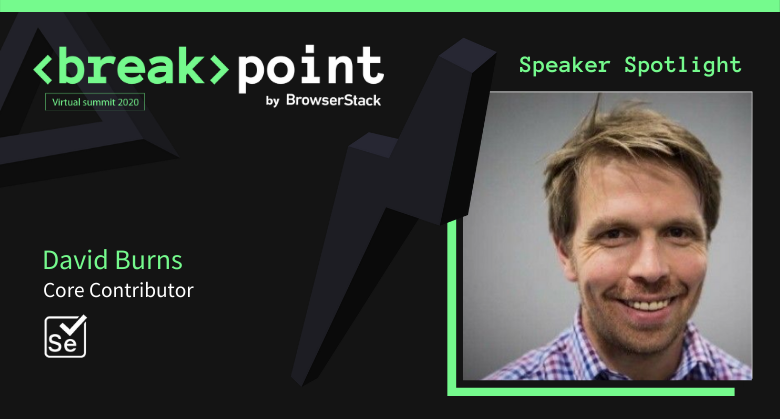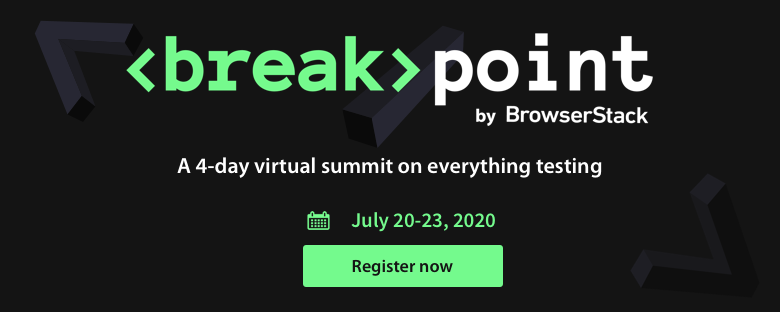
Breakpoint 2020 is a 4-day virtual summit on everything testing. We're bringing speakers from the best dev and QA teams to talk about building QA processes, automating at scale and best practices for success with tools and frameworks.
Featured today is David Burns, core contributor to Selenium, Chairperson for the W3C Browser Testing and Tools Working Group, Editor of the W3C WebDriver specification, and Engineering Manager at BrowserStack.
David, a.k.a 'Automated Tester', has authored multiple books, including 'Selenium 1.0 Testing Tools: Beginners Guide' and 'Selenium 2 Testing Tools: Beginners Guide'. David likes solving hard problems and working on different tools and frameworks.
How did you come to be a core contributor to Selenium?
When I first started out with Selenium, about 14 years ago, I helped answer questions in the Selenium Forum.
I was the only QA in a startup, so I did both programming and testing. I helped wherever I could, and this helped me understand what the others were doing. I soon started contributing by creating documentation (documentation is essential if you want people to use your tool).
I then started fixing .NET bindings, since I was working in a .NET shop at the time. This is how I started 'committing' to the project. After that, I rewrote the python bindings because they needed a lot of love—and became a core contributor.
Later, when I joined Mozilla, my leadership team wanted me to contribute to the project—which I gladly did—and the rest, as they say, is history.
What do you do as Chairperson for the W3C Browser Testing and Tools Working Group?
A lot of it is coordination and facilitation. The Working Group is currently working on a new transport protocol to allow the browser to return certain bits of information on its own, rather than the command response design that it currently has.
My role is to make sure that we have good interactions with the W3C, and that all members of the group see consensus on topics.
Can you give us a sneak-peek into your session for Breakpoint 2020?
I will discuss the future of Selenium, what features are being designed and built, what is happening in the standards process, and how they impact the new features. I will also be showing off the newest features. :)
Can you tell us about the books you’ve written?
I wrote intro books when there weren't any available, to try and help people get started with Selenium. A lot of the industry is built from people making changes in careers, so I also wrote books to meaningfully guide these people.
Have you worked on any side-projects recently?
A lot of my side projects are not computer-related. I try to do simpler projects on the side so I can have a good work-life balance. I am always following interesting technology changes with great interest, but rarely have the time to try them out.
What would you tell someone who was new to testing?
Make sure you communicate your value to your leadership team. Unfortunately, testers are seen to be second-class citizens in some companies, but their value is incredibly high. They can take technical problems and make them human-readable. This ability to be technical and not technical is vital, and it is crucial to remind your leadership of that.

